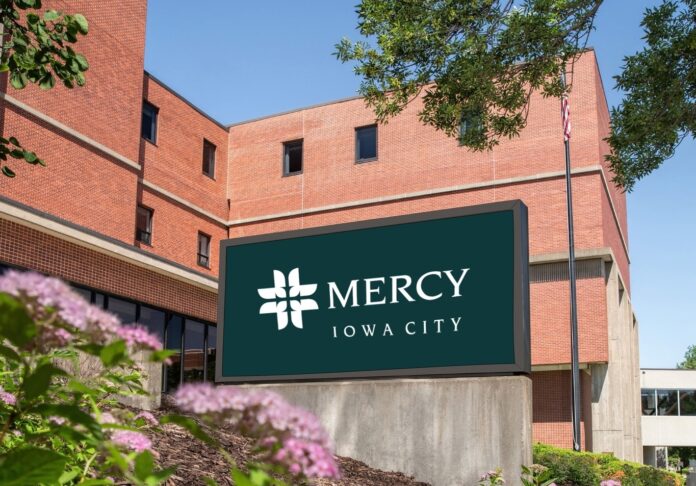
Mercy Iowa City will remain an operational community hospital following its acquisition by bond investors led by Preston Hollow Community Capital, bondholders for Mercy.
“Since making a major financial investment in Mercy Iowa City in 2018, Preston Hollow Community Capital has been committed to ensuring that Johnson County residents can continue accessing critical health care services through a community-based hospital,” said Jim Thompson, chairman and CEO of Preston Hollow Community Capital. “The Preston Hollow team is pleased that this critical goal will be met for many years to come now that our bid to acquire the hospital has been approved.”
Mercy’s operations will be assumed by American Healthcare Systems, a community-based hospital system from Los Angeles that helps rehabilitate hospitals. Ownership of the hospital will be organized as an Iowa not-for-profit group with board members composed of community leaders in Iowa City and Johnson County.
University of Iowa disappointed
The University of Iowa, competing bidder, said that the the final outcome fell short of its expectations.
“We are disappointed in this outcome because we believe there is value in having patient care delivered by an Iowa-based health system,” a press release from the president’s office stated. “Nevertheless, we are heartened that the selected bidder, the bond holder, has committed to keeping Mercy Iowa City as a hospital.”
The University added that despite the end result, it appreciates that Mercy will remain a medical institution.
“As a university, we participated in the bankruptcy auction because it is important to protect and enhance access to quality health care and jobs in our community. We are hopeful that this will be realized with Mercy Iowa City’s proposed new ownership structure.”
Steindler relieved
During the transition, Preston Hollow Community Capital and American Healthcare Systems will hold multiple full-team meetings with Mercy Iowa City’s healthcare professionals, including doctors, nurses, and other staff members. These meetings will serve to hear feedback and recommendations, answer questions, and establish a necessary partnership to further the hospital’s mission.
Steindler Orthopedic, Mercy’s main orthopedic care provider for almost 75 years, expressed relief that the uncertainty of the situation is reaching a conclusion.
“We are reassured that Preston Hollow is committed to preserving a community hospital and affiliated services in Iowa City. What this means for the physicians, nurses, and employees who have remained loyal to Mercy over a lengthy period of uncertainty and what this means for our community cannot be overstated,” said Patrick Magallanes, president and CEO of Steindler Orthopedic.
“The Steindler team looks forward to working closely with Preston Hollow and American Healthcare Systems during the transition and the ongoing management of the new hospital.”
Background
On July 24, Mercy investor Preston Hollow Community Capital and master trustee Computershare Trust petitioned the court to put the hospital into receivership, accusing Mercy of breaching contracts connected with $63 million it borrowed via publicly-issued bonds.
On Aug. 7, Mercy and the University of Iowa signed a Letter of Intent stating that the University would purchase Mercy and its assets for $20 million. The following day, the Iowa Board of Regents moved to accept the University’s request to purchase Mercy Iowa City, following the hospital’s filing for Chapter 11 reorganization in the U.S. Bankruptcy Court in Iowa’s Northern District.
During proceedings, the University faced an unexpected competitor – Preston Hollow Community Capital – which caused the sale to go to auction.
Prior to the final sale hearing, Mercy plans to present the final purchase agreement and submit a proposed form of order approving the sale of its assets.




